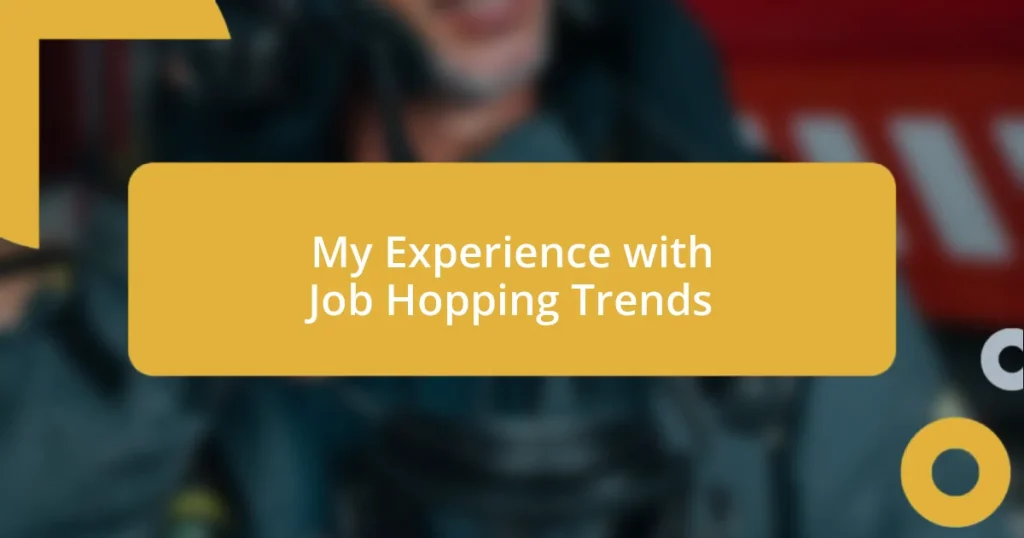Key takeaways:
- Job hopping arises from desires for higher salaries, career growth, work-life balance, and a fitting company culture.
- While it can accelerate career advancement and skill development, it also poses challenges like perceptions of unreliability and difficulty in forming lasting relationships.
- Successful job hopping requires a coherent career narrative, consistent networking, and choosing roles aligned with personal passions and long-term goals.
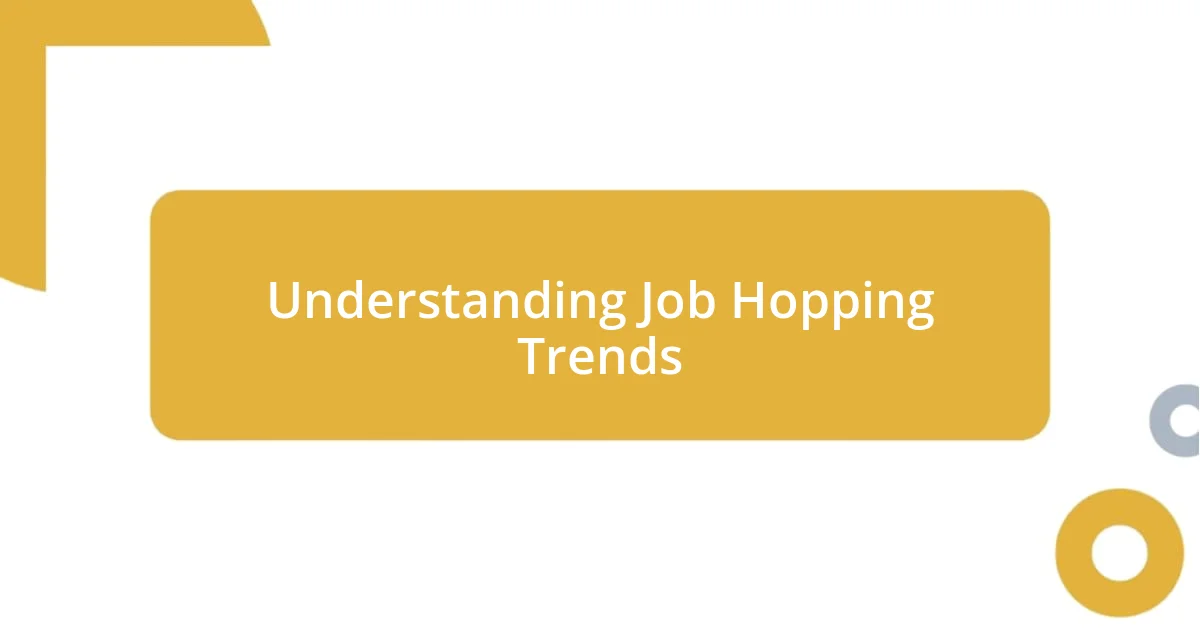
Understanding Job Hopping Trends
Job hopping has become a common trend in today’s workforce, especially among younger generations. In my own experience, I’ve witnessed friends change jobs every year or two, chasing better opportunities or simply seeking excitement. It makes me wonder: is job hopping truly a sign of ambition or a symptom of restlessness?
From my perspective, the reasons behind job hopping range from the desire for higher salaries to the pursuit of a workplace culture that aligns more closely with personal values. I once made a decision to leave a position because the company’s core beliefs no longer resonated with me, and I still remember that sense of freedom it gave me to seek a better fit. Isn’t it fascinating how our jobs can shape our identity and overall happiness?
However, while job hopping can offer fresh experiences and opportunities for growth, I’ve often thought about the potential downsides. Employers may view frequent job changes skeptically, perceiving them as a lack of commitment. Reflecting on my own journey, I’ve had to strike a delicate balance between exploring new avenues and demonstrating my reliability to potential employers. Have you ever thought about how job hopping affects your professional reputation?
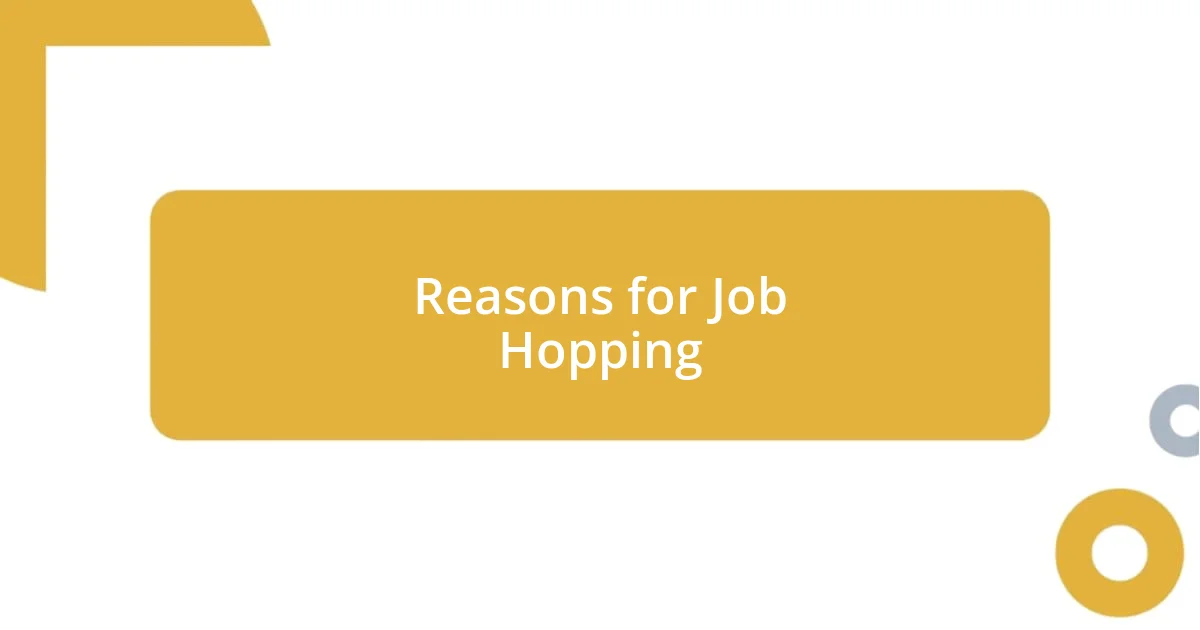
Reasons for Job Hopping
A common reason I’ve observed for job hopping is the pursuit of better compensation. It’s almost instinctive; we want to feel valued for our skills and contributions. I remember when I accepted a new position that offered a significant pay increase. The thrill of that decision was intoxicating, but it also led me to reflect on how much we place our self-worth on our salaries.
Other motives often include the desire for career advancement and the quest for a healthier work environment. Here’s a quick list of common reasons for job hopping:
- Higher Salaries: Seeking better financial compensation.
- Career Growth: Looking for opportunities to advance quickly.
- Work-Life Balance: Aiming for flexibility and better personal time.
- Company Culture: Desiring a workplace that aligns with personal values.
- Skill Development: Wanting to acquire new skills and experiences.
Each of these reasons resonates with me on some level. I’ve turned down offers that weren’t a cultural fit, and I’ve taken leaps when I knew the environment would nurture my growth. It’s almost like a dance; knowing when to move and when to stay requires a mix of confidence and self-awareness.
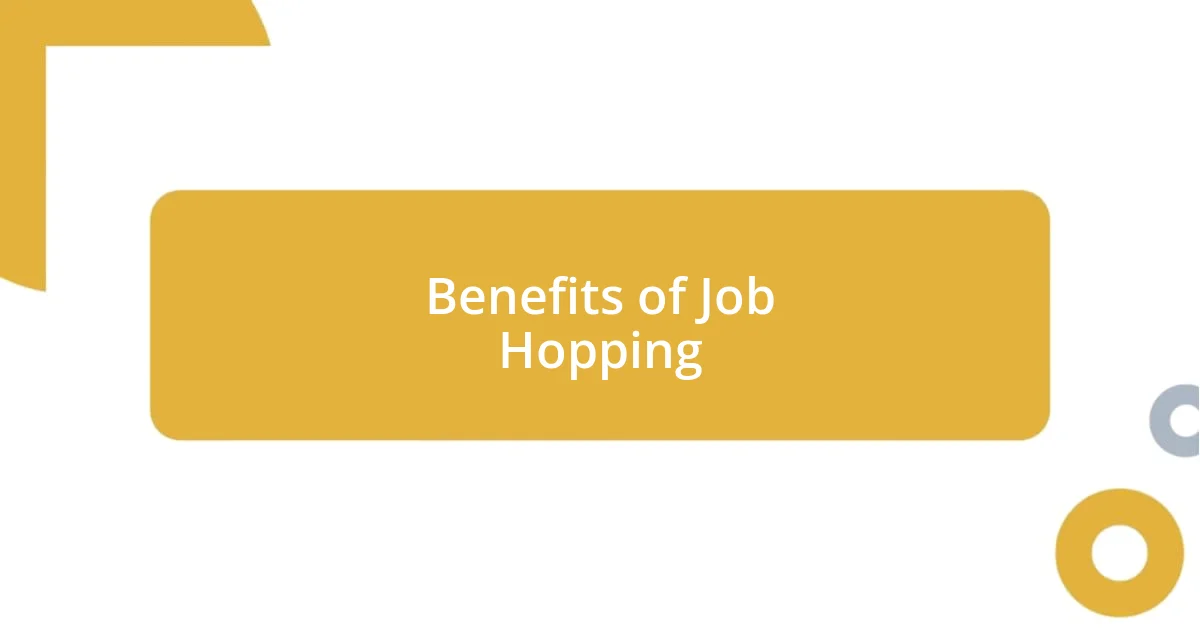
Benefits of Job Hopping
Job hopping can lead to a wealth of valuable experiences. Every new role can introduce diverse skills, broadened perspectives, and a stronger resume. I remember starting a job at a startup; the rapidly changing environment forced me to wear many hats. The adaptability I gained there has been instrumental in my career since.
In my experience, job hopping has often translated into a faster career trajectory. Each new position brought fresh challenges and the chance to negotiate better terms, including salary and benefits. I once jumped from one tech company to another and secured a promotion that I might not have achieved by staying put. It made me realize how each move can serve as a stepping stone toward greater professional achievement.
Additionally, it fosters a strong network of contacts. I’ve met incredible people at various firms, and maintaining those connections has opened doors for both collaboration and mentorship. Have you ever noticed how a single conversation can lead to unexpected opportunities? It’s proof that with every job change, the relationships you build can be as significant as the roles themselves.
| Benefit | Description |
|---|---|
| Skill Development | New roles offer diverse skills that enhance adaptability. |
| Career Advancement | Faster promotions can occur through strategic job changes. |
| Networking Opportunities | Expand your professional network through varied workplaces. |
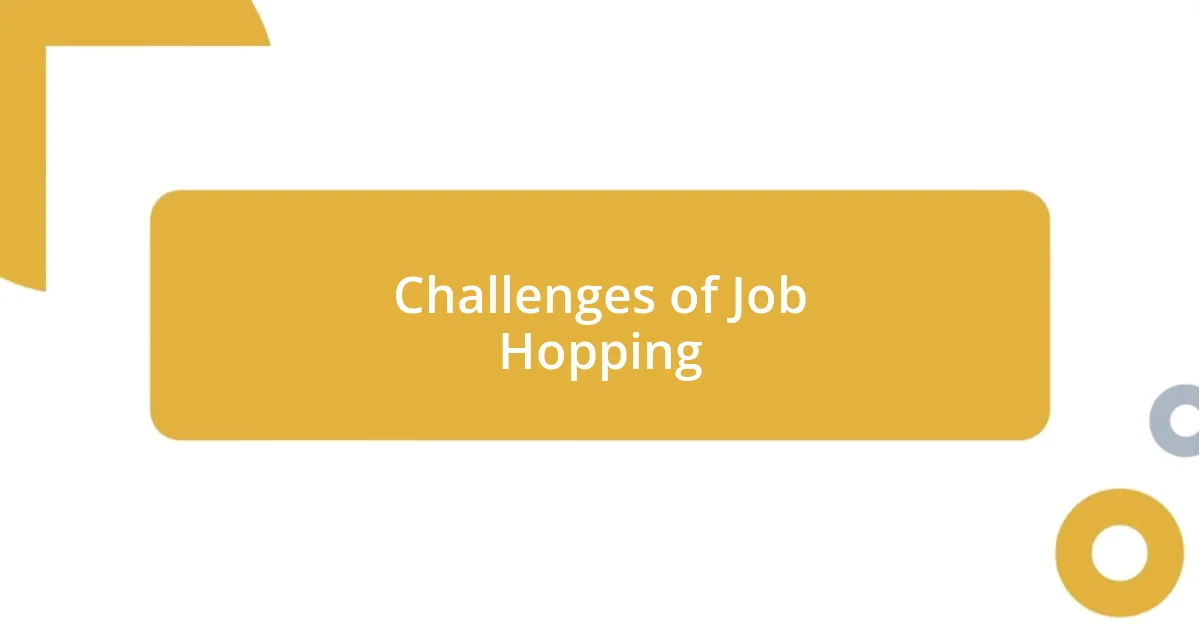
Challenges of Job Hopping
Navigating the job-hopping trend isn’t all sunshine and rainbows. One of the major challenges I’ve encountered is the risk of being perceived as unreliable. There were moments when I felt the sting of judgment from hiring managers who viewed my varied job history with suspicion. It’s a harsh reality; for them, a string of short stints might raise red flags about my commitment. Have you ever felt that pressure to prove your loyalty in a world that values flexibility?
Moreover, I’ve faced the difficulty of mastering new environments repeatedly. Each time I joined a new company, I had to adjust to different cultures, expectations, and workflows. I vividly recall the confusion that washed over me during my third transition when I struggled to adapt to an entirely different project management system. That learning curve can feel daunting, and I sometimes wondered if the upheaval was worth the supposed benefits.
And let’s not forget the impact on personal relationships. When your job changes frequently, it can be challenging to build lasting connections with colleagues. I once had a meaningful friendship blossom at a job, only to leave for a new opportunity a few months later. That experience left me pondering: how do you cultivate deep bonds in a transient work environment? It’s a delicate balance, one that can leave you feeling a bit isolated amid the constant change.
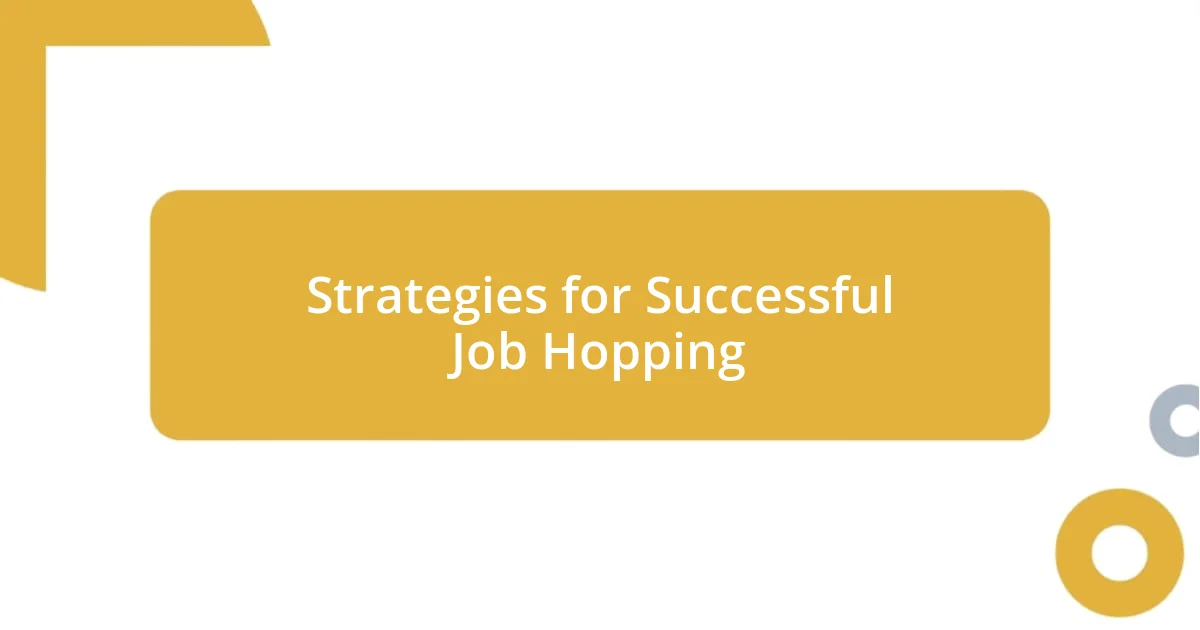
Strategies for Successful Job Hopping
To successfully navigate the job-hopping landscape, I’ve found it crucial to clearly articulate your career narrative. Each role should connect logically to the next, showcasing a trajectory rather than a disjointed path. I remember when I switched from a marketing role to a project management position; I framed my transition as an evolution of skills that made me a more holistic professional, which resonated well with potential employers.
Networking consistently is another vital strategy that I can’t emphasize enough. After each position, I made an effort to keep in touch with colleagues and mentors, turning casual connections into lasting relationships. I once attended a meetup event months after leaving a company, where I ran into an old teammate. This casual interaction evolved into a new learning opportunity as we discussed potential collaborations. Have you ever considered how your past connections can catch you off guard in the best way?
Lastly, it’s essential to seek roles that excite you and align with your long-term goals. I realized that each job change should not merely be about a better paycheck but also about finding passion in what you do. I had a job offer that paid significantly more, but after some heartfelt reflection, I chose a position that sparked my enthusiasm instead. It was a reminder that at the heart of job hopping lies the pursuit of joy and fulfillment in our careers.










